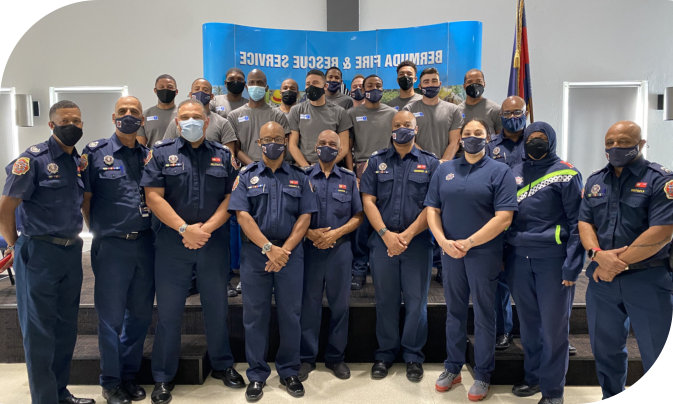Keeping up with changes and maintaining our skill proficiency can be challenging. I am sure many of you are just like me and have struggled to find time to read an article, attend a class or even practice a skill but the daily grind gets in the way. I would like to describe the process I started a two years ago and make some recommendations that I have found helpful.
First, taking time to keep our knowledge and skill proficiency is a big part of being a Prehospital Healthcare Professional. We work in an environment where information, treatments and equipment are always changing or evolving. Sure, we can just wait until we take our Biannual Core Competency Refresher but we all know how we feel about sitting in a classroom.
What can we do different? How can we make this into something that is more appealing or piquing our interest?
According to the National Registry of Emergency Medical Technicians, “The National Continued Competency Program encourages Nationally Certified EMS personnel to pursue life-long education while also providing state and local agencies the freedom to customize continuing education to meet local operational needs.
The current national model breaks down certification level and the specific amount of recommended training on the national (50%), state/local (25%) and individually (25%).

Each level of certification has a minimum number of hours that must be live instructor lead instruction and a maximum number of hours of distributive learning. I have placed those amounts in parenthesis next to the hourly breakdown above.
Meeting the requirements for Re-certification is one way of maintaining competency but can we use other methods to keep ourselves sharp?
Monthly Drug Checks can be used as the day we review our state and agency approved medications. Whether at work or off that day you could spend a few minutes of your day to review medications. Maybe you further break medications down and schedule that you will focus on certain medications each month. Such as, reviewing medications used for sedation and pain management in January. You can easily review the indications for administration, dosage, contraindications and special precaution with a small group.
Example Schedule:

Building lifelong Learning as a Habit
There are several educational testing prep sites that offer students study guides and practice questions designed to prepare them for the NREMT Test. How can we use these to assist us with staying fresh and up to date on our knowledge? These sights usually provide review material that can be easily reviewed online and then will provide questions to see if you understand the content. The material is broken down into the different domains of prehospital knowledge, which makes it easier to pick topic you would like to review.
Here are some examples of the different sites available:

I use a monthly schedule to make keeping myself up to date. On the second and fourth Tuesday of the month, I take an online class. The topics will vary but this month I took two courses: Blood Administration Course and Capnography. Each course provided me 1 hour of CAPCE Approved Distributive Credit but most importantly it updated and refreshed my knowledge in those areas.
There are several nationally recognized outlets for this type of training:

These programs can allow you a quick, easy and affordable way to sharpen your professional knowledge.
NAEMT Courses:
The final recommendation I have for sharpening your knowledge and skills is to take courses offered by NAEMT, the National Association of EMTs. The NAEMT is a nationally recognized organization that is there to advance EMS as a Profession. They offer the following course, which are all CAPCE Approved.
Prehospital Trauma Life Support, Advance Medical Life Support, Geriatric Emergency Medical Services, Psychological Trauma in EMS Patients, EMS Safety, All Hazards Disaster Response and several other great courses. National EMS Institute is an approved NAEMT Training Center. We have course offering throughout the calendar year. You can find our Continuing Education Schedule under the Continuing Education section of this website.
Closing Thoughts:
Keeping ourselves trained and proficient can be a challenge but building into a habit may provide you will a better way to approach a very valuable requirement in our profession. Small investments in time and effort can add up over time. I hope you find some of these suggestions helpful and you can use one of them to continue to be the best Prehospital Healthcare Provider you can be.
Contributor: Robert Holland, BA, NRP



